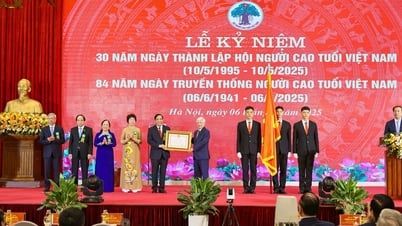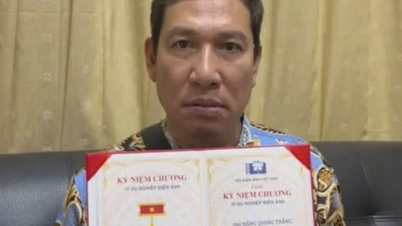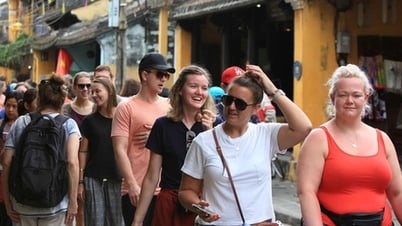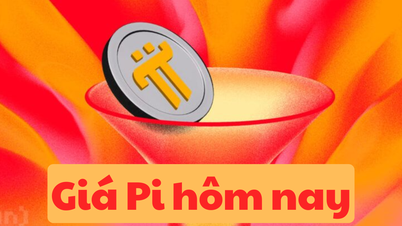Taking advantage of his small height, the thief blended in with the tourist group without buying tickets, waiting until night to commit the crime. After stealing 9 valuable items, he climbed over the wall and escaped.
The Forbidden City is one of the most significant historical and cultural structures in China. It was the residence of the royal family of the Ming and Qing dynasties and the political center of China for 500 years.
Since 1925, the Forbidden City has been under the management of the Palace Museum - which owns a rich collection of artworks and artifacts, based on collections from the Ming and Qing dynasties.
According to statistics, on average, the Palace Museum welcomes about 6 to 8 million domestic and foreign visitors each year. As a place to display many valuable collections, the museum is also targeted by many thieves.
Since 1949, there have been six daring robberies recorded in the Forbidden City. In previous cases, two criminals were sentenced to death and three were sentenced to life in prison for stealing jewelry, gold plates and ancient royal seals.
The theft that occurred in 2011 received the most public attention. This was because this was a place with a strict security system, but an unprepared thief managed to successfully carry out the crime and escape. This caused the management to receive heavy criticism.

9 valuable items were stolen.
The incident occurred on the night of May 8, 2011. Security guards at the Forbidden City discovered a suspicious person and asked him to stay where he was so they could call his superiors. Taking advantage of the opportunity, the subject quickly fled.
At 8:00 a.m. on May 9, before the Forbidden City opened to visitors, museum staff discovered a hole in the decorative wall of the Palace of the Great Wall. Nine pieces of precious jewelry inside were stolen.
These are gold-plated, diamond, platinum and precious stone-encrusted jewelry pieces made in the early 20th century, with high historical value. They originally belonged to the Liangyi Private Museum in Hong Kong (China) and are one of the works displayed in the exhibition jointly organized by the two museums.
At 10:00 a.m. the same day, staff here discovered two pieces of evidence lying near the wall, one of which was seriously damaged.
On the morning of May 11, the Palace Museum and the Liangyi Museum jointly held a press conference to publicize the list of stolen items and two items left at the scene to prevent thieves from selling them on the black market.
Beijing police later announced that they had arrested the suspect, Shi Baikui, 27, at a cafe in Fengtai, a suburb of the city, along with some evidence. The robbery ended after 58 hours of investigation.

The thief was arrested after 58 hours of police investigation.
At the investigation agency, Thach confessed that he used to work as a farmer in Shandong province. After that, he left home to go to Beijing to find work. In a desperate situation, Thach saw many valuable antiques in museums and had bad intentions, planning to steal them.
Taking advantage of his small stature, he sneaked into a group of tourists visiting the Forbidden City and escaped without a ticket. Arriving at the Imperial Palace, he hid in a small room, waiting until nightfall to commit the crime.

Thach Bach Khoi was sentenced to 13 years in prison.
At 10pm on May 8, 2011, he broke the glass door in the showroom, left fingerprints on the scene and stole 9 items. When discovered, he fled. During the escape, 5 items were lost, leaving only 4 items.
Thach sought help from someone to appraise the treasures, but was told they were "fakes" so he angrily threw them in the trash. Afterwards, he hid in an internet cafe until he was arrested.
If he could sell these antiques, Shi could illegally profit 150,000 yuan (over 520 million VND). On March 19, 2012, Shi Baikui was sentenced to 13 years in prison for breaking and entering and stealing, and fined 13,000 yuan (45.7 million VND).
After the incident, the official website of the Forbidden City publicly disclosed the security flaws and admitted the mistakes.
(According to Vietnamnet, April 7)
Source



























![[Photo] President Luong Cuong works with Hung Yen and Thai Binh Provincial Party Committees on implementing Resolution of the 11th Central Conference, 13th tenure](https://vphoto.vietnam.vn/thumb/1200x675/vietnam/resource/IMAGE/2025/6/6/127b735d2761484d81dcee0d7725a25b)
![[Photo] General Secretary To Lam receives Korean Ambassador to Vietnam](https://vphoto.vietnam.vn/thumb/1200x675/vietnam/resource/IMAGE/2025/6/6/a0765b7543784cbcbfe4755b67d43ab4)
























































![[OCOP REVIEW] Tu Duyen Syrup - The essence of herbs from the mountains and forests of Nhu Thanh](https://vphoto.vietnam.vn/thumb/402x226/vietnam/resource/IMAGE/2025/6/5/58ca32fce4ec44039e444fbfae7e75ec)











Comment (0)